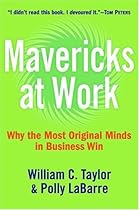UN Agency Invites Pivot to Geneva
Very pleased to hear that Pivot's David Eby will be presenting to the Centre on Housing Rights and Evictions (COHRE).
Here's Pivot's announcement:
A United Nations-funded housing rights agency has invited Pivot Legal Society lawyer David Eby to Geneva to make a presentation on the impacts of the 2010 Olympic Games on Vancouver’s most marginalized residents.
Eby’s presentation to the Centre on Housing Rights and Evictions (COHRE) in mid June will be part of a larger workshop presenting final results from COHRE’s two-year study of the housing rights impact of international events, with a specific focus on the Olympic Games.
“I am honoured that this internationally recognized research agency has chosen Pivot to present on homelessness and the Games,” said Eby. “I will do my best to provide this international audience with a comprehensive report on Vancouver’s progress, or lack of progress on these issues.”
Eby has spent the last two years with Pivot studying the state of low-income housing in Vancouver’s Downtown Eastside, Canada’s poorest urban neighbourhood. In 2006, he was co-lead author of Cracks in the Foundation, Pivot’s comprehensive study of housing issues facing low-income residents in Vancouver. In 2007, he was an editor of the Impact of the Olympics on Community Coalition’s Interim Report Card and is a member of the Board of that organization. Experts from the UN High Commission on Human Rights and UN-HABITAT are also scheduled to present.
“Given Vancouver’s experience with Expo ’86, I would have thought our governments would be more concerned,” said Eby, “but with just over two and a half years to go before the games, the affordable housing legacy promised in the bid process has yet to appear and through Civil City our city council is poised to harass and displace Vancouver’s most vulnerable citizens.”
Stops at the World Health Organization, the UN High Commissioner for Human Rights, and the Joint United Nations Program on HIV/AIDS are on Eby’s itinerary.
---------------------
 Tags for information about: for:vsef, Social Economy, Housing, Pivot
Tags for information about: for:vsef, Social Economy, Housing, Pivot
--------------------
Labels: Housing, Pivot Legal Society, UN, Vancouver
Continue reading this item ...





